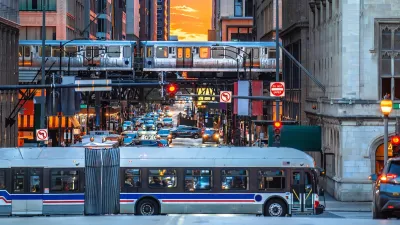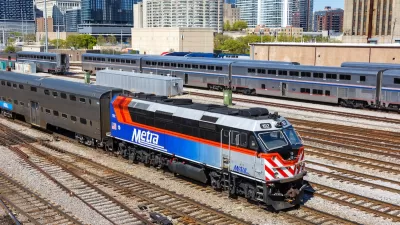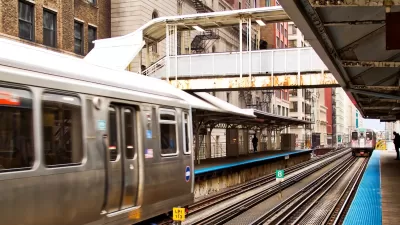Metra, Chicago's regional rail provider, has announced that it will increase fares starting in February 2012. For over 300,000 weekday riders, the price increase will mean hundreds of dollars more in fares per year.
Like many other transit agencies, Metra has faced repeated budget deficits during the recession, according to reporter Scott Martin.
Martin also explains that the reason Metra has decided to apply these increases is because, as stated by new management, "the need for capital investment is reaching a tipping point, risking safety, speed, and service. The 2012 budget will end the pattern of using capital funds for operating expenses, leaving a $53 million gap in the budget."
In 2008, fares were last increased by 10 percent. This time around, service cuts were proposed, but riders strongly rejected them. Instead, Martin said that Metra put forward the current plan of fare increases averaging 25 percent.
FULL STORY: Chicago regional rail passengers to be hit with sharp fare hikes

Alabama: Trump Terminates Settlements for Black Communities Harmed By Raw Sewage
Trump deemed the landmark civil rights agreement “illegal DEI and environmental justice policy.”

Planetizen Federal Action Tracker
A weekly monitor of how Trump’s orders and actions are impacting planners and planning in America.

Why Should We Subsidize Public Transportation?
Many public transit agencies face financial stress due to rising costs, declining fare revenue, and declining subsidies. Transit advocates must provide a strong business case for increasing public transit funding.

Judge Orders Release of Frozen IRA, IIJA Funding
The decision is a victory for environmental groups who charged that freezing funds for critical infrastructure and disaster response programs caused “real and irreparable harm” to communities.

‘Clybourne Park’ Sets Stage for Housing Equity Discussions
Clybourne Park, a play exploring race, real estate, and community tensions, can set the stage for discussion on the lasting impacts of housing discrimination, gentrification, and the fight for affordability.

Understanding Road Diets
An explainer from Momentum highlights the advantages of reducing vehicle lanes in favor of more bike, transit, and pedestrian infrastructure.
Urban Design for Planners 1: Software Tools
This six-course series explores essential urban design concepts using open source software and equips planners with the tools they need to participate fully in the urban design process.
Planning for Universal Design
Learn the tools for implementing Universal Design in planning regulations.
Caltrans
Smith Gee Studio
Institute for Housing and Urban Development Studies (IHS)
City of Grandview
Harvard GSD Executive Education
Toledo-Lucas County Plan Commissions
Salt Lake City
NYU Wagner Graduate School of Public Service





























